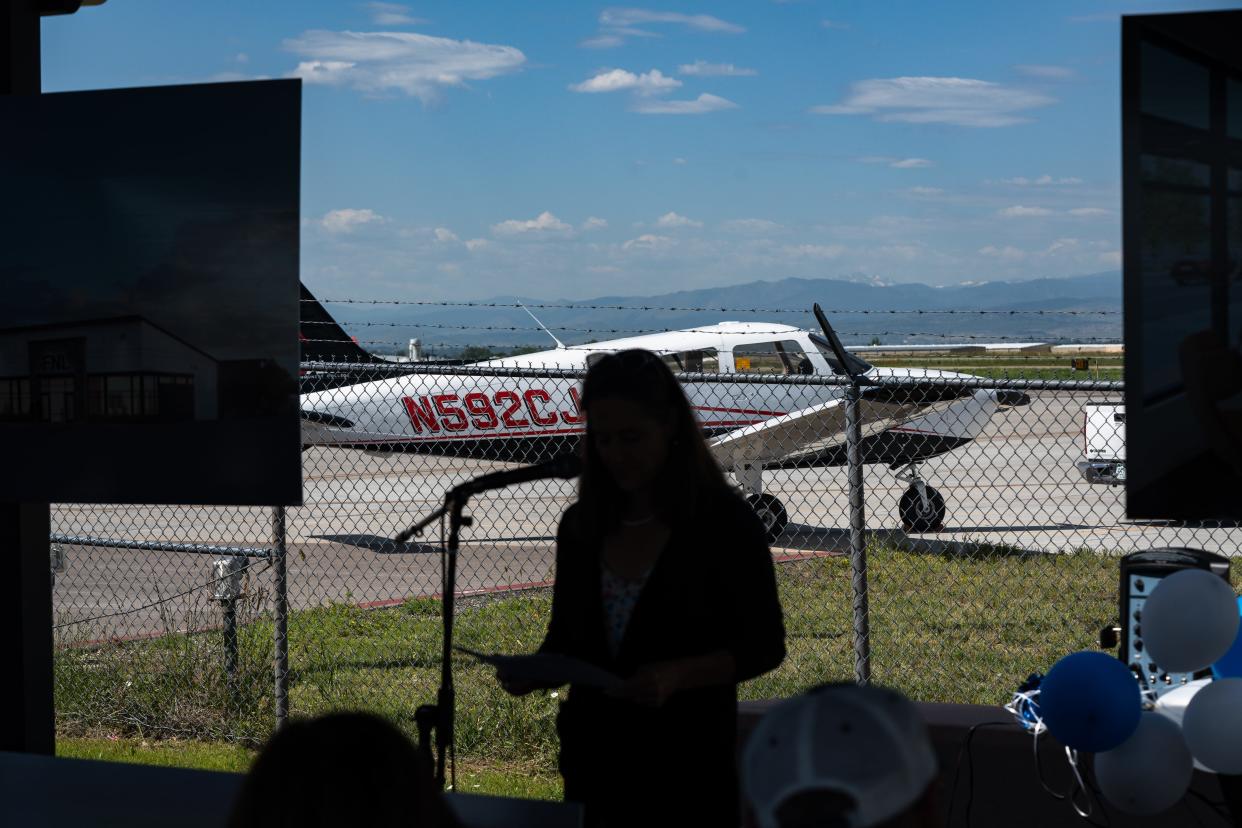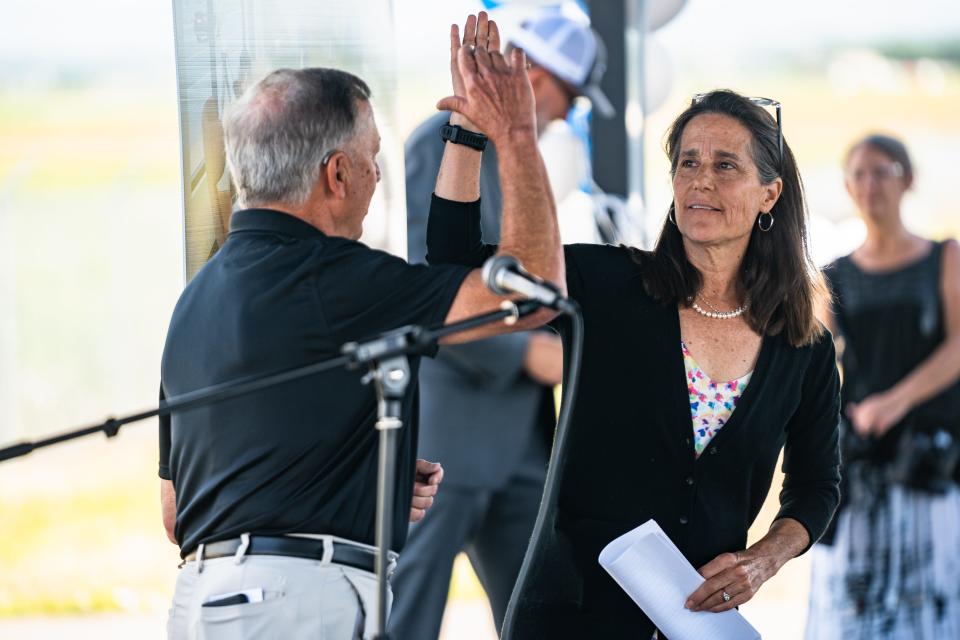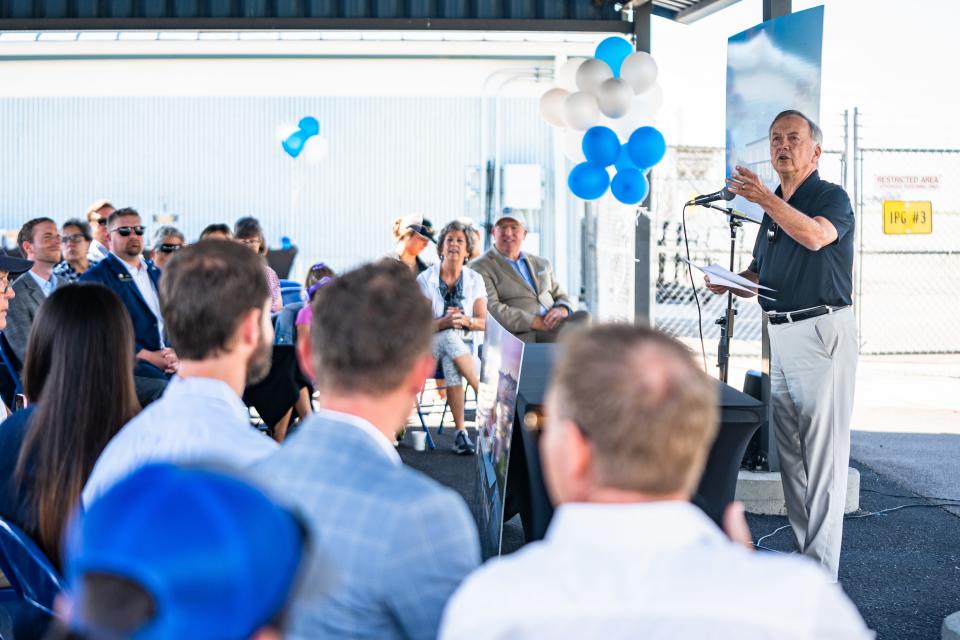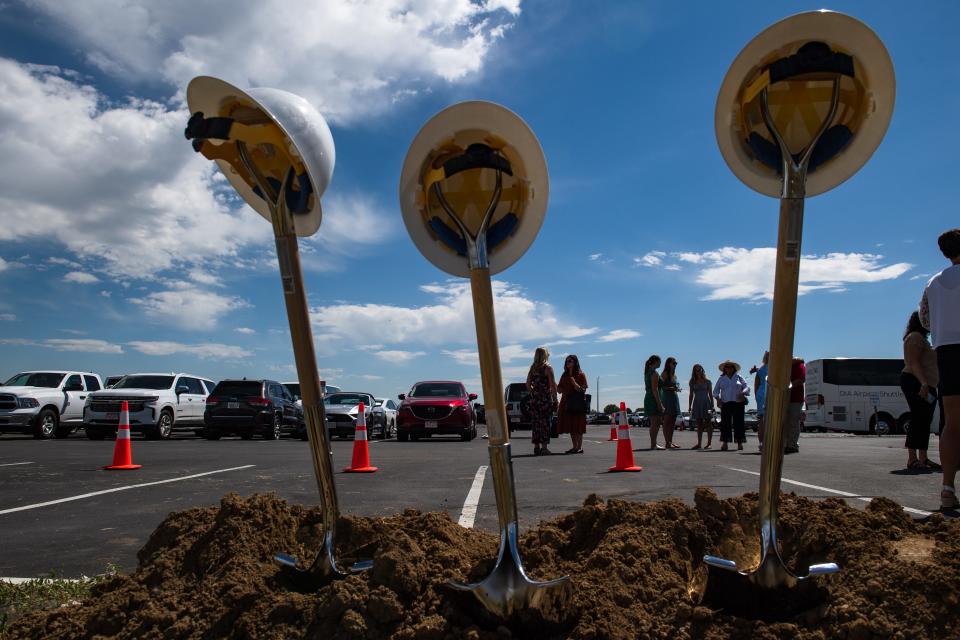Should Fort Collins pull out of the regional airport? Report says there may be support

Long-term management of Northern Colorado Regional Airport is once again a hot potato, but a new study ordered by the cities of Loveland and Fort Collins, which co-own the facility, makes one thing clear: The two parties lack a shared vision for the airport's future, but neither believes the way it's been run since 2015 is working.
Today, the airport is run by a seven-member commission comprised of two officials and one citizen from each city, along with one jointly appointed citizen. Day-to-day management is overseen by an airport director and small staff. City councils maintain control over major airport decisions including budget and finances.
From interviews with a combined 16 city council members in September, report author Daniel Reimer of DSR LLC, special counsel to the cities on airport matters, said all agreed Loveland has greater influence over and gets more benefit from the airport that is within its city limits.
The report listed a dozen viable options for changes in airport governance but narrowed them to three recommendations for further study, including having Fort Collins divest from the airport, essentially ceding it to Loveland.

It will be up to a four-member governance subcommittee to evaluate and recommend an option to would bring to the commission and city councils. Mayor Jacki Marsh and council member Troy Krenning are representing Loveland on the committee; Fort Collins Mayor Jeni Arndt and Council member Julie Pignataro are representing Fort Collins.
Loveland and Fort Collins have been working on three priorities for the airport: development of a remote air traffic control tower, widening a runway and expanding the terminal, Loveland City Manager Steve Adams said.
"They're all underway, so we’re headed for the path of the (airport) as a commercial opportunity for Loveland and the northern region," he said. While Fort Collins has supported those efforts, "there's maybe a different vision" between the two cities.
With two of the three projects ready for completion next year, it's time to work on the governance model, Adams said.
The two cities have struggled over the airport's 60-year history of joint ownership to find a governance structure that works. Four different models have been put in place, with the most recent adopted in 2015 with an amendment to the intergovernmental agreement that gives the cities joint management authority.
They've disagreed in the last year over contributing $1 million each for construction of a new terminal, support for regularly scheduled commercial air service, their levels of disappointment over a virtual air traffic control tower that has failed to come to fruition, and concerns city council members do not get regular and adequate information.
Whether the two cities can find a common vision remains to be seen. With new commission and council members, "we're starting fresh in many perspectives," Fort Collins City Manager Kelly DiMartino said. An extended airport commission meeting has been scheduled in January, "when we will start to get a better sense of that."
Loveland's representation on the airport commission has changed recently with the Nov. 7 election of three new city council members. Adams and former Mayor pro-tem Don Overcash had served on the commission for several years and supported the terminal and remote tower. Overcash lost his race for mayor and no longer serves on council, which also meant he could not serve on the commission. Adams was ousted from the commission when council voted in November on new committee assignments.
Loveland resident Curt Burgener, Marsh and Krenning, who is also a pilot, represent Loveland. Marsh and Krenning could bring a different perspective to the airport commission than Overcash and Adams, who were staunch supporters of the airport and its vision for the future.
Fort Collins resident and pilot Mick Williams, Arndt and DiMartino represent Fort Collins. Jerry Stooksbury, jointly appointed by both cities, also serves on the commission.
Marsh and Arndt were not immediately available for comment on this story.

Krenning said he does not support the airport's governance structure, construction of the new $22 million terminal for an airport that has no commercial air service or the virtual tower project that has failed to win approval from the Federal Aviation Administration as of yet. The existing governance structure "still leaves most of the major decisions to the city councils, which is a very tedious and inefficient way of conducting business," Krenning said.
He doesn't necessarily favor a Fort Collins divestiture, although he understands "Fort Collins' frustration," he said. "The more partnerships Loveland and Fort Collins have the better it is for both communities," he said.
Krenning said he would support a public/private partnership or airport authority that had members that could make decisions including the ability to hire an airport manager. The airport is currently managed by David Ruppel, a consultant with Aviation Management Consulting Group, hired as interim manager in June after the resignation of airport manager Jason Licon.
Fort Collins City Council member Kelly Ohlson has said "it's time to divorce ourselves from the airport. Not a bad divorce, a good divorce and just let it be a Loveland thing," he told the Coloradoan earlier this year. "It's a Loveland airport no matter what you call it," he said.
Recommendations favor airport authority, divestiture

Here's a look at the report's three primary recommendations and the pros and cons outlined in the report:
Create an airport authority: All property would be transferred to the authority. Airport authorities are largely independent of their originating local government, but the FAA requires local governments to be co-sponsors for grant agreements for planning and improving airports in case the airport authority is dissolved so there will be an entity responsible for continuing to operate the airport, complete unfinished work, and satisfy the other contractual obligations.
Create a special district to manage the airport: Establishing a special district through airport-specific legislation would allow the Colorado General Assembly to compose the governing body in a way that best reflects the longstanding interests of the cities; delegate specific powers to the district, including the power to levy taxes that not available to airport authorities; and possibly constitute the district in such a way that FAA would not require the cities to remain co-sponsors. Airport special districts are untested in Colorado and the report said it is uncertain of the advantages compared to an airport authority.
Have Fort Collins divest itself from the airport, in essence ceding it to Loveland. Loveland would be an obvious choice to take over operations since the 1,000-acre facility is within the city and it already provides services. It would resolve joint ownership issues, increase efficiency, and acknowledge the city already provides most administrative support. But it would eliminate Fort Collins' control and influence over the airport and would not likely provide any financial gain for Fort Collins.
When the property was annexed into Loveland in 1992, Loveland took on the cost of administration, including airport employees, so it gets all the sales and use tax revenue from the airport.
Fort Collins reaps no direct financial benefit from the airport, but the airport hasn't cost the city anything for four years, until a $1 million request earlier this year to make up a funding gap for a new airport terminal.
The airport operates on revenue coming from rates and fees charged to airport users, land leases, and federal and state grant programs.
The cities commissioned the study to help them revisit the governance structure that they say makes it cumbersome to get approval from both councils on policy-level and big-ticket items. The report also cited concerns about the dissemination of information to elected officials and staff and whether those asked to make decisions are up-to-speed and equipped to do so.
In the 60-plus years the cities have owned the airport, governance has changed several times, but with each iteration a board, steering committee or commission has been in place to help develop policies, budgets and oversee expenses.
But the cities have never wavered on their role as the airport's owner and operator.
Other options exist
Maintain or amend the intergovernmental agreement to reallocate responsibility among the cities, commission and airport staff, based on concerns with the current allocation of responsibility. Maintaining the status quo has virtually no support from either city.
Transfer the airport to the city of Loveland or Fort Collins. There was some interest among council members from both cities in transferring the airport to Loveland but no interest in transferring it to Fort Collins. If there were to be a transfer, one city would transfer ownership to the other.
Transfer the airport to Larimer County: It would reflect regional interest in the airport and would avoid a fight over which city would assume control. On the other hand, Larimer County has no experience managing an airport and is not currently part of airport governance.
Privatize all or parts of the airport. The cities could contract with a private company to run the airport or sell or lease the airport to private entities entirely.
Northern Colorado Regional Airport history
The cities jointly acquired roughly 1,000 acres of private property in 1964 to build the airport, which opened in 1965 as Fort Collins/Loveland Municipal Airport.
From 1965 to 1979 the airport was managed with help from an airport board, including representatives of Fort Collins, Loveland and Larimer County.
From 1979 through 1983, an ad-hoc committee was formed to run the airport. The committee consisted of two council members and city managers from Loveland and Fort Collins. In 1983 the airport authority was formed and remained in place until 1990. Despite the airport authority, the cities kept their "considerable" decision-making authority.
From 1990 through 2015 a steering committee was formed with representation by both cities. The steering committee became the current seven-member commission under a revised intergovernmental agreement for the joint operation of the airport.
This article originally appeared on Fort Collins Coloradoan: Loveland, Fort Collins seek Northern Colorado Regional Airport changes

